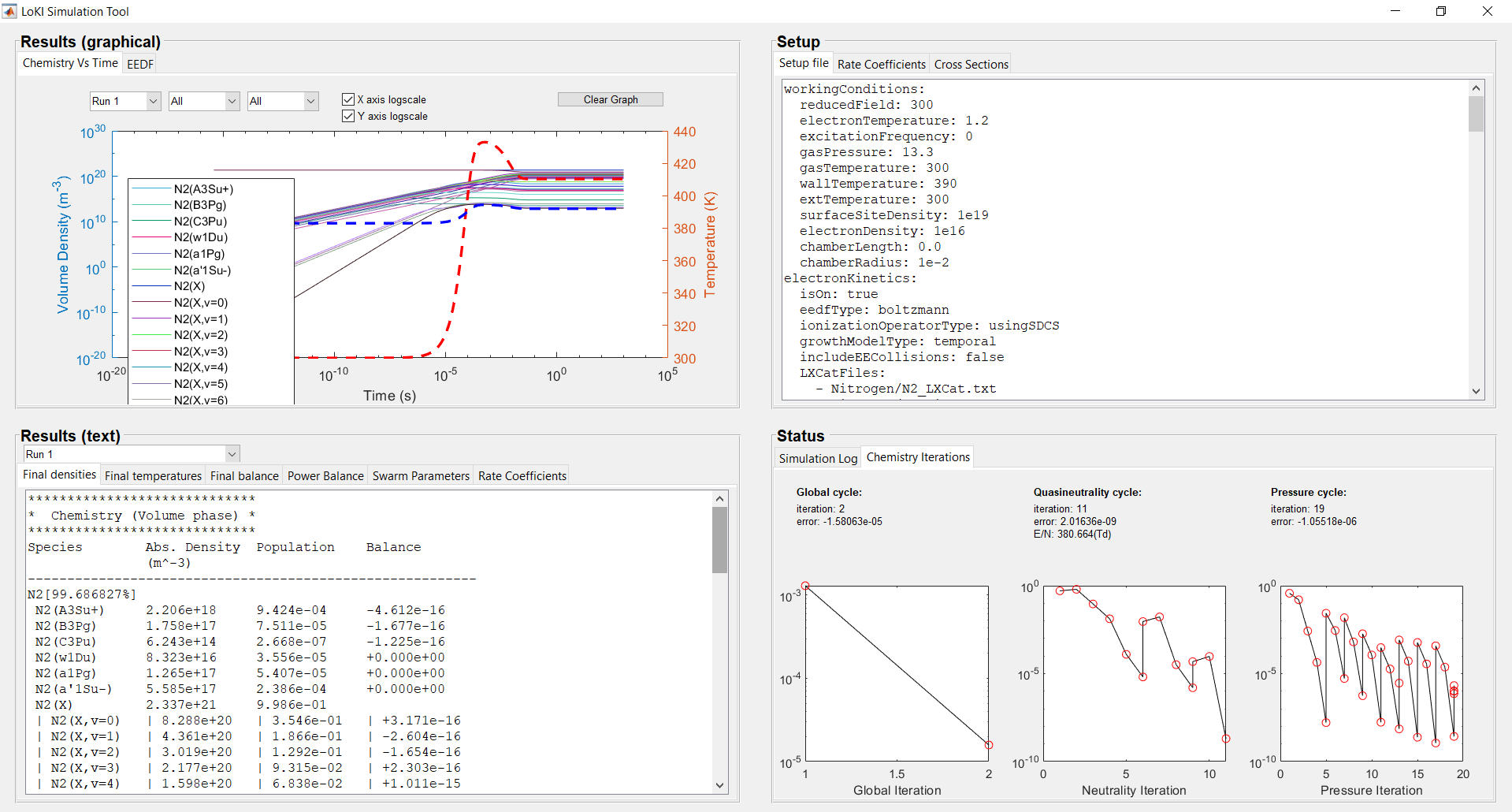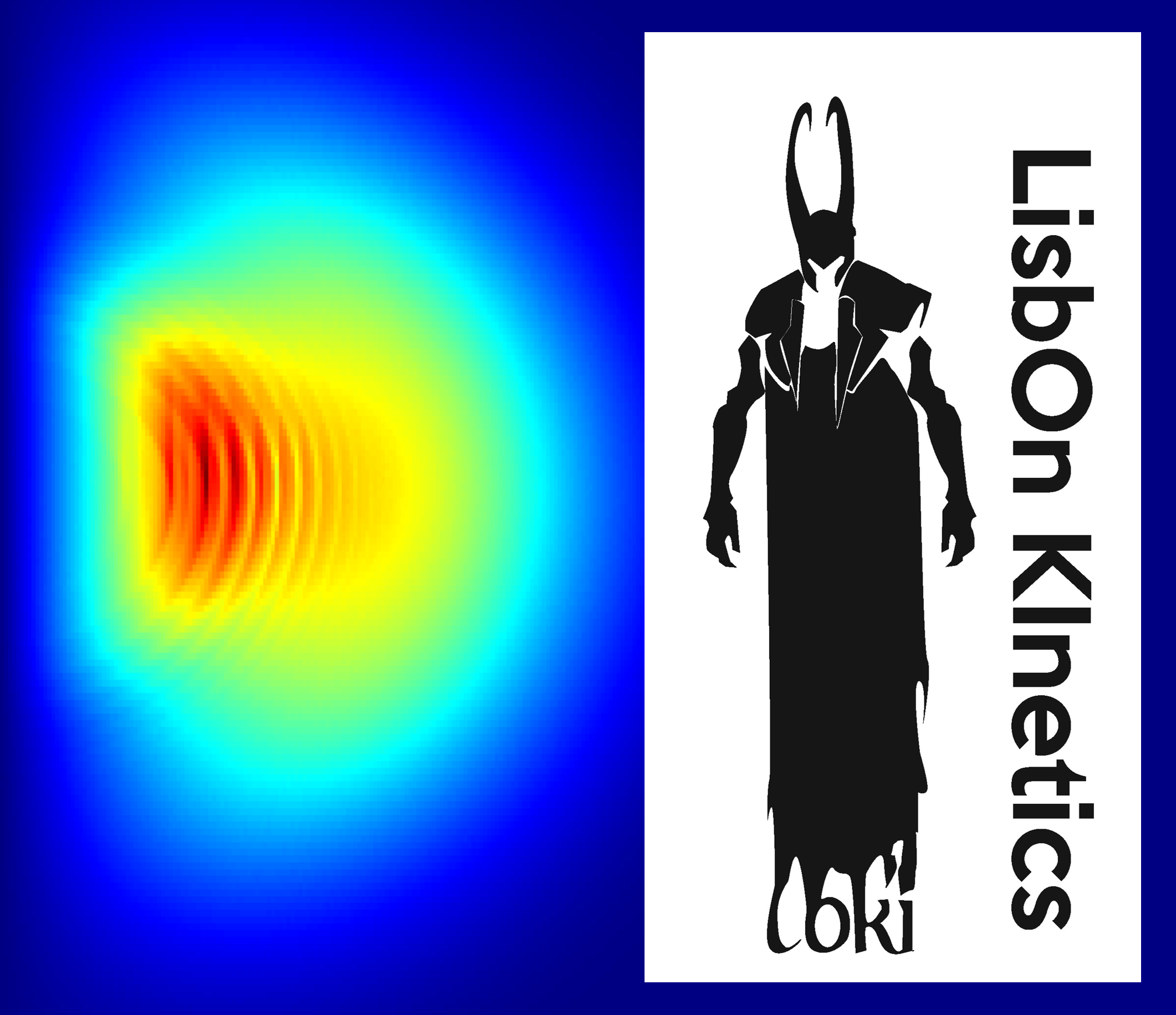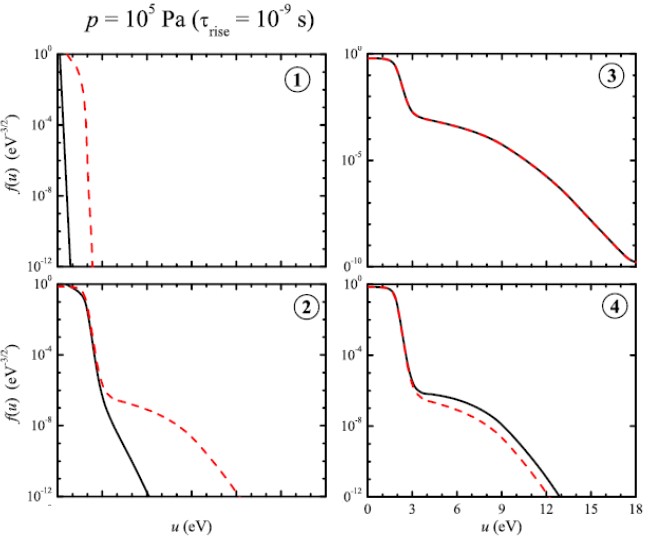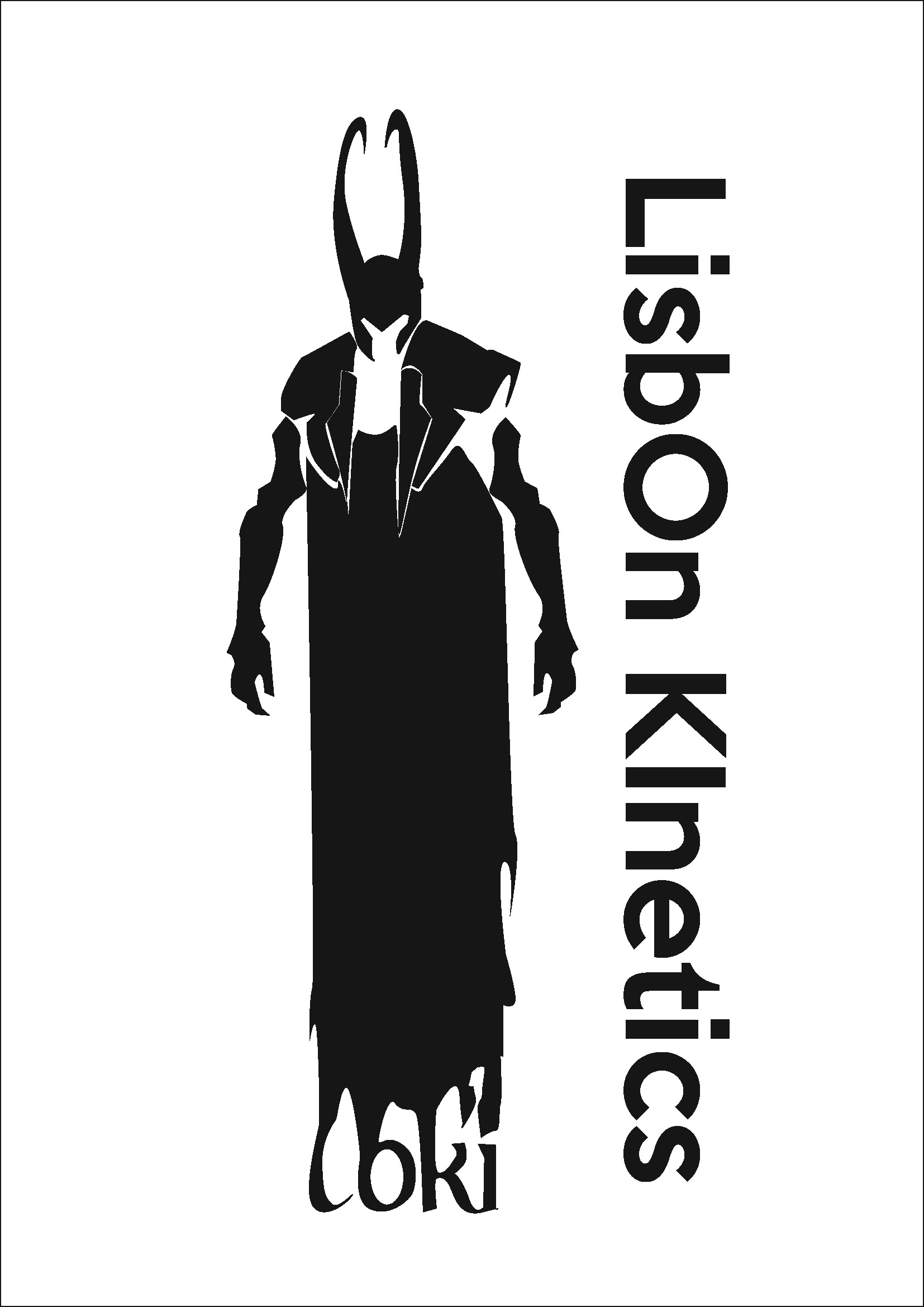LoKI v3.1.0 and LoKI-B v2.2.0 released
Versions 3.1.0 of the LisbOn KInetics suite (LoKI) and the LisbOn KInetics Boltzmann solver (LoKI-B) were released on November 4, 2022. The new versions solve some important bugs (in LoKI-B, improving the evaluation of power in e-e collisions and solving an error in the temporal growth operator, when using the time-integration algorithm) and include some new features: in LoKI-B, a general implementation of anisotropic e-impact collisions; in LoKI-C, a new implementation of the thermal module, considering different boundary conditions; in LoKI, a major revision/update of the information displayed in the GUI, the first implementation of a logging system, and the first implementation of the coupling between LoKI-B and LoKI-C for post-discharge simulations (to be verified/extended for stability improvement and towards a full coupling between the tools, in future releases).







